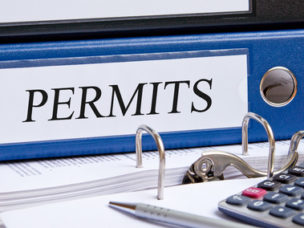Stay in the know
Subscribe to the Real Estate Blog and we’ll send you an email each time something new is posted.
Subscribe to the Real Estate Blog and we’ll send you an email each time something new is posted.
Blogs
Real Estate Blog
No writing? No problem. When a Purchase & Sale may be found enforceable
On May 22, 2012, a judge of the Middlesex Superior Court found that a buyer and seller intended to be bound by an offer to purchase undeveloped land established through email correspondence, despite the parties’ agreement that a final hard copy offer would be executed. In, Feldberg et. al. v. Coxall, MLW No. 12-143-12, the Court allowed a Lis Pendens to be filed in the chain of title to the property, reviewing the likelihood of success on the merits in light of Seller’s special motion to dismiss the Buyers’ complaint.
The decision includes excerpts from certain email exchanges between Coxall (the Seller), Feldberg and Rogers (the Buyers) and their counsel, which included attached drafts of the offer to purchase. In an email, Seller indicated that the only open item was Feldberg’s financing approval, which Seller assumed would include the lender’s proposed closing date. Once a financing commitment letter with a closing date was provided (despite containing various conditions), this prerequisite was satisfied. The Buyers delivered a final original executed offer and deposit check, but never received a countersignature from Seller. Buyers then filed this action to force the sale.
As constantly echoed by first year law school professors, a contract relating to real property must be in writing to satisfy the Statute of Frauds. In this instance, email correspondence was deemed sufficient to satisfy the requirement of a writing. In reviewing this key issue, the Court noted the Buyers must set forth a good faith argument in order to successfully overcome the Seller’s motion to dismiss. Buyers cited cases where email correspondence may satisfy the Statute of Frauds and the Court made note of the Massachusetts Uniform Electronic Transactions Act, General Laws, Chapter 110G, which attempts to reconcile historical real estate requirements and practice in this digital age. Pursuant to this statute, the conduct of the Buyers and Seller in using emails containing personalized signature blocks to negotiate the terms of this deal may constitute an agreement to use electronic means, even though a final paper offer was to be executed. These arguments were found supportable and reasonable in response to the Statute of Frauds defense raised by Seller. As the parties ultimately settled this issue out of court, Massachusetts appellate courts will not be answering this question in the context of these particular circumstances.
Although this case is not precedential, it serves as a strong reminder that in this electronic age, the game is constantly evolving. Emails, albeit providing instant gratification in corresponding with clients and opposing counsel in negotiating a deal, are formal correspondence and may be used as evidence to demonstrate the parties’ intent to be bound, and are subject to subpoena and court review (one may want to think twice about the liberal use of emoticons, to avoid the issue of whether a smiley face may signify a meeting of the minds, or constitute an intent to be bound). This case may also provide a reason for business people, lawyers and law firms to add additional content to the automatic disclaimer appearing at the foot of every email that negotiating the terms of a transaction through email does not bind the parties and no contract is formed unless and until mutual delivery of manually-affixed signatures on original documents.



